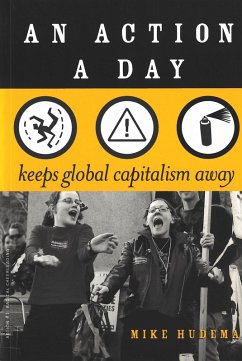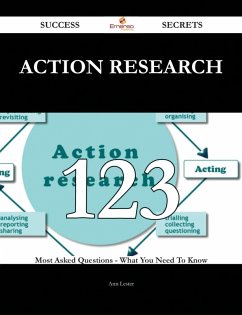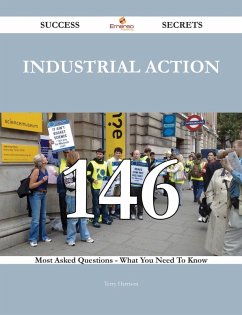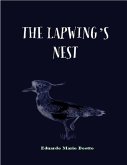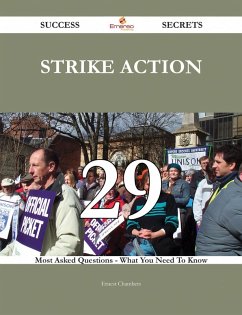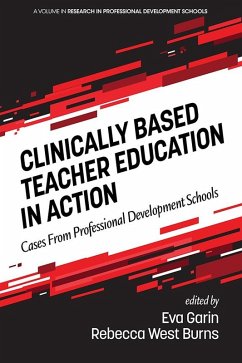"When we turned that corner we stopped and couldn't believe our eyes, the amount of damage and destruction. I think just seeing that made it real for me; that other people are taking our future, and we can either shape the future for ourselves or we can let somebody else do it. ”
**Mike Hudema in conversation with Amanda Crocker, March 2004**
**AMANDA CROCKER**: What was the first action you took part in? **MIKE HUDEMA**: My first action was actually sprung on me by chance. It was the first time I ever went away without my parents. My friend and I had heard about the protests at Clayoquot Sound (this was after the main protests were over) so we drove out to the coast and went up to the Clayoquot Sound office to grab some pamphlets. We were all very new and very keen, and they passed out a handbill with a meeting time and place. When we got to the meeting a guy came out in a full radiation suit, playing an accordion, and he led everybody inside. And as soon as we got in, somebody put chains around the doors, because this was an illegal meeting and we were going to use direct action tactics. My friend and I had no idea what to do, so we just sat there and learned about guerrilla tactics, about how to get in, how to climb fences, how to send radio broadcasts out. This was the first experience I had with direct action. **AC**: What compelled you to stay and take part? **MH**: The drive out to Clayoquot really opened my eyes to the damage being done to the planet. There's a place where you're driving on the road and you're in government parkland and then you hit a corner where the park ends. And when you hit that corner you go from these huge redwoods that are much bigger than you imagined, even lying down just gigantic, and you turn that corner and it's a clear-cut. When we turned that corner we stopped and couldn't believe our eyes, the amount of damage and destruction. I think just seeing that made it real for me; that other people are taking our future, and we can either shape the future for ourselves or we can let somebody else do it. This was a turning point for becoming active, thinking I want to take control and change the world. **AC**: Who or what has most influenced your own personal politics? **MH**: There are many different contributing factors. For example, after my second year in university I went away for a year to India on a Canada World Youth exchange. I was part of a development project in India and I saw how community could be made up differently. I was living in a rural village and the government there had virtually rejected the World Bank's development program. The local government allowed everyone in the village to ask for what they wanted; they had a sort of participatory budget meeting where tens of thousands of people came out to debate the priorities of the budget. And after seeing that, when I came back to Canada I really thought that Canadian society and Canadian communities could be made up differently. Some writers, like Noam Chomsky, have also influenced my thinking. People like Abbie Hoffman and Augusto Boal, writers who take a more theatrical look at how we can change the world while laughing and dancing at the same time. And wonderful activists that we have here in Edmonton. Karena Munroe, my partner, is a long-time activist and inspires me all the time. Karena has really opened my eyes to feminist issues. Just sitting through meetings and realising that our activist community, while we are fighting for social justice and social change, recreates patriarchal power relations in our own meetings, seeing male voices come out much stronger than others and dominate meetings or take leading roles, I really wanted to break that down. So I was guided by women around me who were already trying to do that. **AC**: How has living in Alberta shaped your politics? **MH**: I look at it like we're living in the belly of beast. Alberta is a hard place to organize because of the right-wing culture. We have Ralph Klein as premier and we've had a conservative government for the past 30 years. But living in that culture, I think you're presented with more problems than others are, and as an activist you might come up against bigger challenges. Our premier supports the privatisation of healthcare and the deregulation of electricity, so activism here is a constant challenge; but for me it generates not just problems but drive. When people aren't addressing important issues I'm encouraged to step up and say, "Something's got to be done about this; we need to build a movement, build something different.” This is not the democracy I learned about in social studies class; it's something else and it's somebody else's interests being represented not mine. **AC**: What is your favourite action in the book? **MH**: There are so many I love. I think the funniest one to do is the Buddha Walk, which actually came out of an exercise that I did as part of a drama group. We saw the movie Baraka and there is a scene with a man walking very slowly and other people are flying past him; it's a really striking image that gets at how fast-paced our culture is. I wondered what would happen if our group all walked slowly in a public space somewhere. Some of the people in our group were having trouble letting go and being crazy, which is something you have to do in a drama group, so we went to the mall and got in a line and we all just moved really slowly. The scene really was amazing because all these people came around to watch the action and then a security guard showed up and said, "You can't do that.” -"We can't do what?” -"You're not allowed to do what you're doing.” -"Well, what are we doing?” And then he got another guard to ask us questions. Eventually they said, "You're walking too slowly.” Our response was, of course, "Demonstrate how fast we need to walk in order to be in the mall.” And we pointed out other people who were walking quite slowly and asked, "Are they walking fast enough?” Eventually the whole conversation just became absurd. We were being asked to leave this place of commerce for interrupting what you're supposed to do there. What you're supposed to do there is shop and buy things and move quickly; and they were trying to say that if you don't do that you're not welcome. But the crowd who had gathered clapped for us and were really baffled by the security guards' reaction. I think they were changed a little bit by this too. Another favourite action was something I did in Québec City at the Summit of the Americas protests. Our theatre troupe was decked out in gas masks and we went up to the front line of riot cops, turned around, and performed a play. It felt really good to perform in this place where people had been tear-gassed all day, people were being shot with rubber bullets, and there was a massive police presence. Our group tried to bring something else in, tried to show the police, the government, and the media, that the movement the police were attacking with tear gas and rubber bullets is a creative movement, people trying to build a new world. We wanted to show that to people and so we just turned around and performed our play; our lungs were hacking but we managed to sing and dance. We sang a beautiful version of "A Brave New World.” That's probably my second favourite action. **AC**: What actions have you taken part in that you think had the best effect? **MH**: I think success can be measured in several different ways. There are many actions in the book that reached the goals we set, but two spring to mind. After the occupation of Anne McLellan's office, the group talked about the occupation's effectiveness in generating discussion in Edmonton around the anti-terrorist legislation that was being rammed in by the government. For four days we sat in McLellan's office and we were able to talk about making the action more fun and creative. So instead of coming back and sitting in the office, we decided to evict Anne McLellan out of her office out on to her front lawn. We changed her sign so that it read "Minister of Injustice” and we ran community forums every half an hour. I think that action is one that I would consider one of the most effective because we had a lot of community support and we were able to educate a lot of people about the issue. Also, the Edible Ballot Society was something that I was part of. That was very effective. We went into Elections Canada, to the pre-election vote, got our ballots, and ate them. I stir-fried mine up. A couple of other members put theirs in a blender with bananas, strawberries, milk, and ice cream and blended it in to a wonderful smoothie. And we ate our ballots. Democracy in Canada is a really shallow form of democracy: voters are encouraged every four years to take part in a symbolic gesture, then go away for four years. We didn't see citizens' views on any issue being represented in our government. Legislation that was being passed in our name or on our behalf really didn't have our support, didn't have the support of the majority of the people, and it seemed like whoever you voted for, big business always got in. And nobody was asking questions about this so we tried to do something theatrical to get those questions raised. We got a lot of media attention and used that attention to try to kick off a public forum across the country about what is democracy, what do we have here, what do we need to change. Because of the media attention we reached a much bigger and more diverse group. But we met many people who were very upset and told us how upset they were that we were eating our ballots. But by the end of the conversation I think they realised why we did it. **AC**: Did your ballot give you indigestion? **MH**: Mine did. I was pretty nervous so I didn't really rip the paper up too well for my stir-fry, and so I was eating big chunks of paper but I just had to consume it because the press was right there. So, yes, mine gave me an upset stomach. When we were eventually taken to court, we ate our subpoenas but we prepared those in the blender and the blender was much better; all I tasted was strawberries and bananas. So if I do it again, that's the way to go. **AC**: Will you vote in the upcoming federal election? **MH**: I'm not sure. I still haven't decided if it's more effective to do something theatrical again, like eating my ballot, to raise questions about democracy that I still don't think have been addressed by our government, or whether it's more effective to work on the campaign of a progressive candidate and try to get that candidate elected. I'm back and forth on this still. **AC**: Do you think the media attention is what made these actions effective? Do you think media coverage is necessary? **MH**: I think it depends on each issue whether the media is integral. I think there are many actions that you can do just for people who pass by, or just for your own group, or just for other activists, to inspire them or to get them to think in new ways. Creative action really allows people to get out of the rut that they're in. Creative actions can re-energise everybody. One of the actions in the book, Fishing in the Sewers, tries to bring attention to water pollution. You hand out a flyer to people walking by, and tell them about the purpose of the action, and try to get them involved. And that doesn't rely on media attention at all. Then there are times when you want your message to reach groups that you can't speak directly to so that's where the media comes in. The media is very focused on visuals so if you want your message to get out to a larger audience then visuals become important for your action. **AC**: Have you ever taken part in an action that you think was a failure? **MH**: It depends on how you define failure. I think if you do an action and it doesn't achieve the goal you want it to and you don't reflect on why that action didn't work, that's a failed action. What I try to do, and what I hope other activists try to do, is reflect on the lessons they learned for next time. And so there are definitely actions which didn't reach our goals. For example, a group of us tried a Reclaim the Streets action; we didn't have enough people but the organizers decided to try it anyway. One person was arrested and only a very few people saw the action, very few people were a part of it. That action could be seen as a failure, but we got together and talked about what went wrong, what we would organize differently in the future. This year the group held another Reclaim the Streets but it was more effective, there were still some difficulties but we're working on that. I do think that as long as you're learning from what you're doing, and engaging in activism, and having fun, the action is not a failure. I've done actions where our group really wanted to get people to come out; they didn't show up but we still had a blast. **AC**: These actions ask people to step out of the most commonly used protest tactic of marching. Why do you think it is important for activists to do this? **MH**: I think that marching can be very draining. Marching is a very repetitive activity, which often doesn't really help you feel like you're making a change. You march from one point to another and then it's over and you don't necessarily feel a part of it. If activists go away from that experience and don't feel reinvigorated, don't feel that they made a difference or that the action was useful, then the numbers for the marches start getting lower and lower. I have a friend, as an example, who is very committed to the freedom of Tibet but only reluctantly participates in marches here because he feels like it is the same thing every year; this sort of symbolic march up and down is good for visibility but not good for reinvigorating the communities that participate. So what my friends and I try to do is add a little more life to actions. Even in a march you can try to get people more active. There are songs in the book and there are Radical Cheerleading cheers, which I think are ways that you can still participate in a march in a more active way. It's great to have this critical mass of people in a march but something like Radical Cheerleading can invigorate people. People will participate in the cheers, especially if the cheers are callbacks, and it's a different feeling than just marching. I think it adds something new and gives everybody a sense of energy at the end of it, and I think that's what we really need, to invigorate people and give people energy, that's really what we're about. **AC**: Some of these actions ask people to step out of their ordinary shy or reserved selves and use theatrics or attention-getting antics. How do you find the courage to take part in these sorts of actions? **MH**: I'm definitely a very drama-esque person (I got my degree in secondary education and drama) so I've always been the type of person who likes to do theatrical-based things, but I do think that there is a learning curve. During the first action I did, I was sitting in that room with the doors chained and I was very scared. The first time I participated in a march I felt very awkward. But you gain courage with each experience. So I recommend doing an action from the book that you're comfortable with or go to a big rally first because it's easier. Start listening to chants and start doing the chants. It's a learning process and the more times you stick up for your rights, stand up for your issue, the more courage you get. So then you can move on to the more vocal or the more 'out-there' actions in the book. There are also other ways if you're not comfortable being yourself; get a costume. Sometimes when people go out on Halloween they're much different people, much less inhibited. If you pick the right costume it can add to your message and it's also very visual. But the more times you do it, the better you get at it. **AC**: Some activists may criticize the book for being too fun and not seriously political. How would you respond to that critique? **MH**: I don't want people to read the book and only do these actions. I do think that you need to know the goals of your action: what you want to accomplish. You need to do that legwork. Many books explain how to do that legwork, how to organize a campaign and do the nitty-gritty. You do have to hold forums or organize email petitions, and you need to take all those steps in addition to theatrical actions or you're not really furthering your cause. What I felt was missing was a book on how to communicate your message through action, practical ideas for actions. So that if you do have your analysis down, you do know what you want to accomplish, but you just need a different way to express it, to get your message out more effectively or try to reinvigorate your group, then this is the book that can help you do that. This book is not an alternative to other forms of political protest or organizing; it's a compliment to everything else activists are doing. And I think it needs to be done in concert with all those different actions in order to be really effective. **AC**: How does context change the way you plan actions? Are these creative actions more appropriate for some political issues than others? **MH**: Yes. I think that you decide that on a case-by-case basis, depending on the purpose of your action, the message that you want to convey. Last year I worked for the student union and part of our goal was to convey what students were really feeling. Tuition has risen 225 per cent at my school over the past decade. My student debt is $45,000 and when I get out I want to work in environmental or poverty law so I'm not looking at a huge salary. So we wanted to communicate the sense of desperation that students are facing. So we held a tuition funeral. We had a full-length coffin that was built in my garage at two o'clock in the morning by a carpenter friend. We had a minister, who gave a reading. We sang hymns. And the message was all very visual so it helped us get our message out but it didn't come off as students just trying to be funny. I do think that there are many actions in the book that don't come off as being just for fun or just goofy but have a very serious message and a harsh tone. **AC**: Do you have any last advice for activists? **MH**: Don't burn yourself out. I think being an activist is pretty tiring, often non-rewarding, time-consuming work. That can get people really down. It's really necessary work but it is tough. I that most people don't realise is how tough this work is; especially when you don't really see immediate changes because often we're talking about large systemic changes. The message to activists is that trying out some of the actions in the book and trying to be more creative can help us get out of that cycle and realise that even if you don't really see the change that you're trying to affect, you are making a difference. If you look at citizens groups around the world, they're all getting bigger; Brazilians have elected a strongly progressive government; the World Social Forum gets bigger every year. So there are many of places of hope around the world. I don't think you really know when that explosion of change is going to happen. I hope this book is a resource for activists so they can get their message out more clearly in a way that helps rejuvenate activists and rejuvenate the people around them.





![Action Research 123 Success Secrets - 123 Most Asked Questions On Action Research - What You Need To Know (eBook, ePUB) Action Research 123 Success Secrets - 123 Most Asked Questions On Action Research - What You Need To Know (eBook, ePUB)]() Ann LesterAction Research 123 Success Secrets - 123 Most Asked Questions On Action Research - What You Need To Know (eBook, ePUB)13,95 €
Ann LesterAction Research 123 Success Secrets - 123 Most Asked Questions On Action Research - What You Need To Know (eBook, ePUB)13,95 €![Industrial action 146 Success Secrets - 146 Most Asked Questions On Industrial action - What You Need To Know (eBook, ePUB) Industrial action 146 Success Secrets - 146 Most Asked Questions On Industrial action - What You Need To Know (eBook, ePUB)]() Terry HarrisonIndustrial action 146 Success Secrets - 146 Most Asked Questions On Industrial action - What You Need To Know (eBook, ePUB)13,95 €
Terry HarrisonIndustrial action 146 Success Secrets - 146 Most Asked Questions On Industrial action - What You Need To Know (eBook, ePUB)13,95 €![The Lapwing's Nest (eBook, ePUB) The Lapwing's Nest (eBook, ePUB)]() Eduardo Mario BoettoThe Lapwing's Nest (eBook, ePUB)3,99 €
Eduardo Mario BoettoThe Lapwing's Nest (eBook, ePUB)3,99 €![Strike action 29 Success Secrets - 29 Most Asked Questions On Strike action - What You Need To Know (eBook, ePUB) Strike action 29 Success Secrets - 29 Most Asked Questions On Strike action - What You Need To Know (eBook, ePUB)]() Ernest ChambersStrike action 29 Success Secrets - 29 Most Asked Questions On Strike action - What You Need To Know (eBook, ePUB)13,95 €
Ernest ChambersStrike action 29 Success Secrets - 29 Most Asked Questions On Strike action - What You Need To Know (eBook, ePUB)13,95 €![Action potential 40 Success Secrets - 40 Most Asked Questions On Action potential - What You Need To Know (eBook, ePUB) Action potential 40 Success Secrets - 40 Most Asked Questions On Action potential - What You Need To Know (eBook, ePUB)]() Lori PriceAction potential 40 Success Secrets - 40 Most Asked Questions On Action potential - What You Need To Know (eBook, ePUB)13,95 €
Lori PriceAction potential 40 Success Secrets - 40 Most Asked Questions On Action potential - What You Need To Know (eBook, ePUB)13,95 €![Clinically Based Teacher Education in Action (eBook, ePUB) Clinically Based Teacher Education in Action (eBook, ePUB)]() Clinically Based Teacher Education in Action (eBook, ePUB)71,95 €
Clinically Based Teacher Education in Action (eBook, ePUB)71,95 €![Action Learning 35 Success Secrets - 35 Most Asked Questions On Action Learning - What You Need To Know (eBook, ePUB) Action Learning 35 Success Secrets - 35 Most Asked Questions On Action Learning - What You Need To Know (eBook, ePUB)]() Raymond McintyreAction Learning 35 Success Secrets - 35 Most Asked Questions On Action Learning - What You Need To Know (eBook, ePUB)13,95 €
Raymond McintyreAction Learning 35 Success Secrets - 35 Most Asked Questions On Action Learning - What You Need To Know (eBook, ePUB)13,95 €